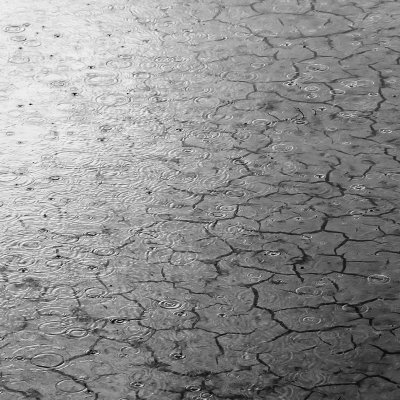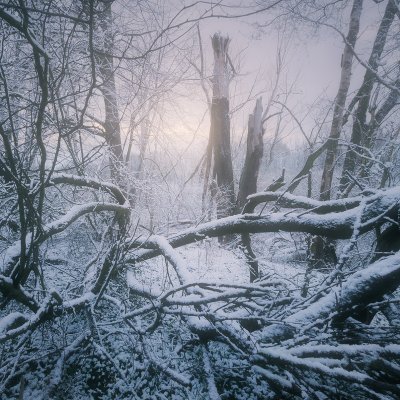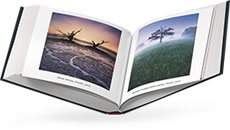Can you tell me a little about your education, childhood passions, early exposure to photography, etc.?
I took up photography some day during the autumn of 2006. I remember my older brother bought Panasonic DMC FZ50. He was inspired by our uncle Dalibor who is a keen technician and has been into photography since the 1990s. My brother probably was not so much into photography itself, but rather into the technical part of cameras and stuff, so he didn´t really shoot that much. Meanwhile, I, being in the first year of grammar school at that time, started to borrow my brother´s camera more and more often.
I was 12 years old, had a speech defect and felt like an outsider in a new class in my school. So I kept borrowing the camera and every day after the school I headed into the River Odra Basin natural protected area. It is a lowland floodplain area, not even a national park, but it is located very close to my hometown of Studénka, a suburb town of Ostrava city, which is the third largest and most industrial city in the Czech Republic. I was always inspired by nature since my early childhood. Our family lives in a house with a huge, beautiful garden with an apple orchard and a small forest. Furthermore, as I mentioned, there is Odra Basin 10 minutes walk from our doorstep, so I spent a lot of time there, ever since the day my parents had taken me there before I could walk.
What are you most proud of in your photography?
There are few things I am really proud of, but if I had to pick the one, it would be the fact that the majority of my portfolio are taken in places no one shot before me. And that is quite unique considering the fact that Odra Basin lies in the centre of the most densely populated region of the Czech Republic. No other photographer before me pursued the idea of shooting there regularly. They didn't see Odra Basin as attractive enough for their photography. After ten years of shooting there, I can ensure everyone it is one of the most attractive areas for landscape photography in the Czech Republic. I haven´t seen so many interesting trees in such a small area (Odra Basin protected area has only 82 square kilometres) anywhere else. Plus, the meadows and forests around Odra are annually flooded, sometimes even two or three times per year. No other place in the Czech Republic has such a dynamic.
In most photographers lives there are 'epiphanic’ moments where things become clear, or new directions are formed. What were your two main moments and how did they change your photography?
Interesting question. Probably the first two years of my photography is the first one, the Frost on the Trees image is the second. The first two years of my photography were most influential in my life and photography. I was 12 to 14 years old, still felt as an outsider both among my classmates and among other photographers and I struggled with terrible feelings of inferiority. I feared my legs might tangle while walking through the school, that I would fall, and that everyone would laugh at me. It never happened or if it did, I do not remember it, but these feelings made me want to succeed. There was a tradition in my school of taking part in a state educational photography competition called Czech Student Photo. I participated in 2007 for the first time and got the second place. Next year, I won, and I received much-wanted DSLR – Olympus E520. Nowadays, I feel I don´t need to compete but back then, I felt it was the only option how to show both my photos and prizes to everyone to be taken seriously.
Tell me about why you love landscape photography? A little background on what your first passions were, what you studied and what job you ended up doing.
I love landscape photography because it clears my thoughts and brings light and inspiration into my mind. And my photography trips are the best healing for my body and soul. We spend so much time sitting at and behind a computer or mobile devices, but landscape photography makes us do the opposite, to go further to find a new point of view or composition and make a better image. Since I started photography at such early age, my only previous hobbies were judo and archery. I studied at the Grammar School of Nicolas Copernicus in Bílovec. It is one of the best grammar schools in the Czech Republic, Petra Kvitová (two times Wimbledon winner studied there as well). And during my studies there, besides photography, I was into economics. The financial crisis hit the world during 2008, and since nobody could explain it to me in that time, I started to read economics books. Currently, I work as a financial planner and real estate broker in a leading Czech consultancy company, and I study economics at the Technical University of Ostrava.
MY PHOTOGRAPHY TRIPS ARE THE BEST HEALING FOR MY BODY AND SOUL. WE SPEND SO MUCH TIME SITTING AT AND BEHIND A COMPUTER OR MOBILE DEVICES, BUT LANDSCAPE PHOTOGRAPHY MAKES US DO THE OPPOSITE, TO GO FURTHER TO FIND A NEW POINT OF VIEW OR COMPOSITION AND MAKE A BETTER IMAGE.
Could you tell us a little about the cameras and lenses you typically take on a trip and how they affect your photography?
I use Olympus E520 and Zuiko 14-42 mm lens, polarizer filter and tripod and that´s it. And yes, that camera is the one I won back in 2008. I am a photographer who has never bought a camera! I am planning to purchase a full frame DSLR soon, however. We live in a very technically oriented world, and I know many photographers who own a lot of lenses and cameras and who spend a huge amount of money on photography. It is not my type of thing. I do photography as a hobby, every penny I make out of it goes back into it, and I have done it this way from the age of 14 when I earned first money by selling my image as a calendar cover. Most of the time when photographers think they are limited by their equipment, they are not. At least that´s my opinion. The main limitation is in our creativity and in the way we approach the photographed object, not in our camera. The only reason I want to upgrade my gear is that I want to spend less time behind computer blending my exposures.
What sort of post processing do you undertake on your pictures? Give me an idea of your workflow.
I process my RAWs in Lightroom 2, convert them into psd and finalise in Photoshop CS3. I usually do Tony Kuypers Luminosity masks to select lights and darks of my image and blend three images in average to get a higher dynamic range. Then, I correct colours, contrast and brightness. Finally, I sharpen the dark pixels (again with TK Luminosity masks), and slightly Orton blur the highlights (with TK Luminosity masks of course). I used to process my photos much more than I do now, and I can do practically everything. I always learn how to do any new techniques to processing in landscape photography, but I found those new approaches less and less appealing both for the viewer and me and in the end even for the image and portrayed the subject. There is a certain line in our post processing which should not be crossed. This discussion started with over the top photoshopped models, and we should take this debate to landscape photography. The way we look at women and nature should be similar. There is something wrong about overly photoshopped sunsets, warped mountains and enhanced colours of grass and flowers. It seems like we want to say with our pictures that natural beauty is not good enough for us. Just erase the shot and return later.
Do you get many of your pictures printed and, if at all, where/how do you get them printed?
I print my images quite often. It is mainly for commercial or promotional purposes. I don´t print just to check and control my new photos. But maybe I should. I print in local labs, primarily on quality photo papers.
Who (photographers, artists or individuals) or what has most inspired you, or driven you forward in your development as a photographer? What books stimulated your interest in photography?
My first source of information and inspiration was for me an excellent book 100 Ways to Taking Better Landscape Photographs by Guy Edwardes. I recommend it to everyone even though it was published more than 10 years ago. I always looked up to Marc Adamus, Floris van Breugeland Kah Kit Yoong. Apart from Guy, these three inspires me the most. Recently, I really like the works of photographers such as Theo Bosboom, Dorin Bofan and Kilian Schoenberger. I also follow amazing and talented photographers such is Szabo Zsolt Andras, Sarah Marino,Sandra Bartocha, Erin Babnik, Ted Gore, Georg Popp and Verena Popp-Hackner and many many more. I really miss the WhyTake community web, where I could find the most of my inspiration.
Can you choose 2-3 favourite photographs from your own portfolio and tell us a little about them?
Forest Temple
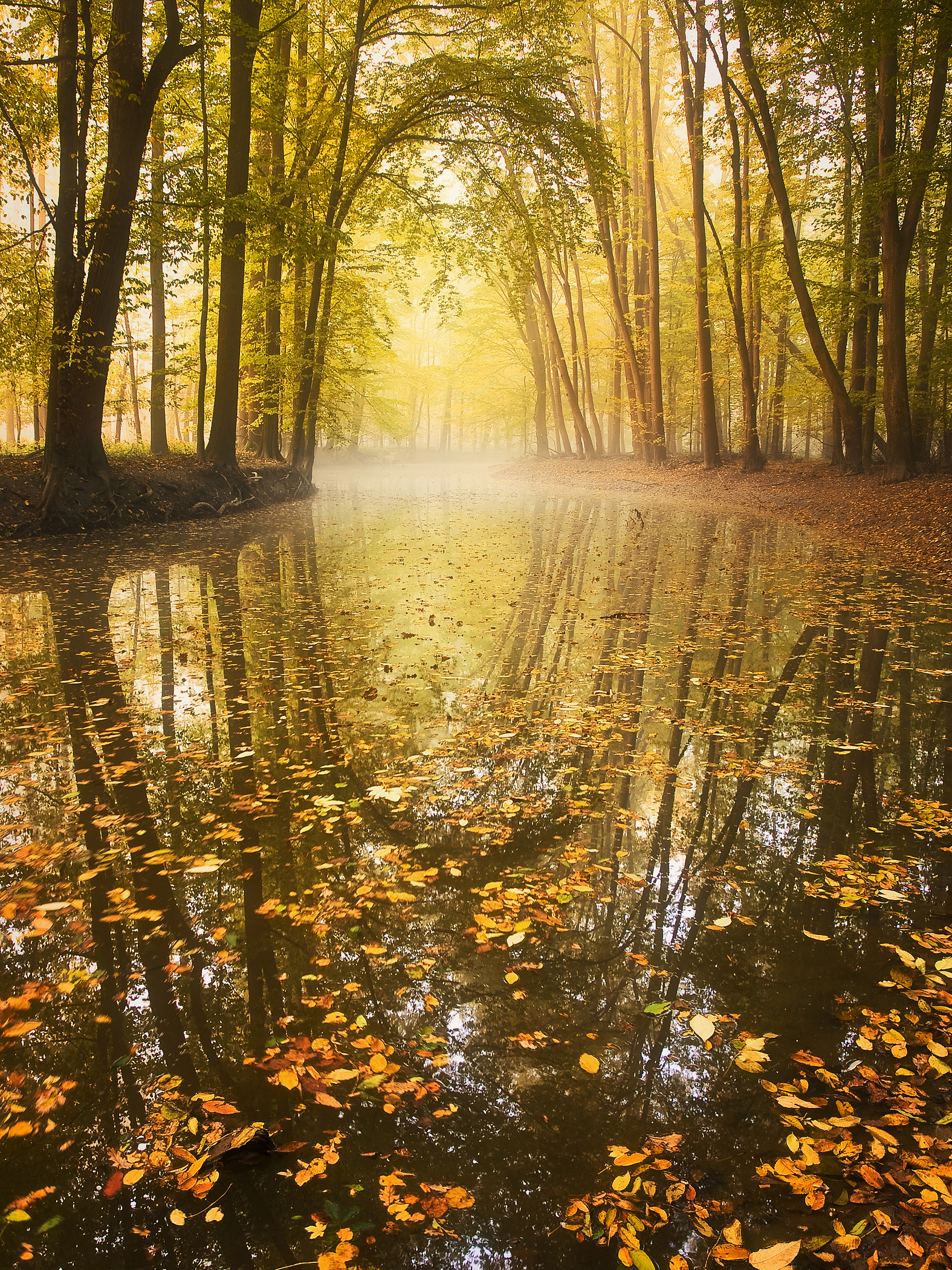
Image of river Odra oxbow in a floodplain forest. It shows the universal spirituality of nature. Something everyone can understand no matter religion, sex or race.
PAIR OF DEAD TREES
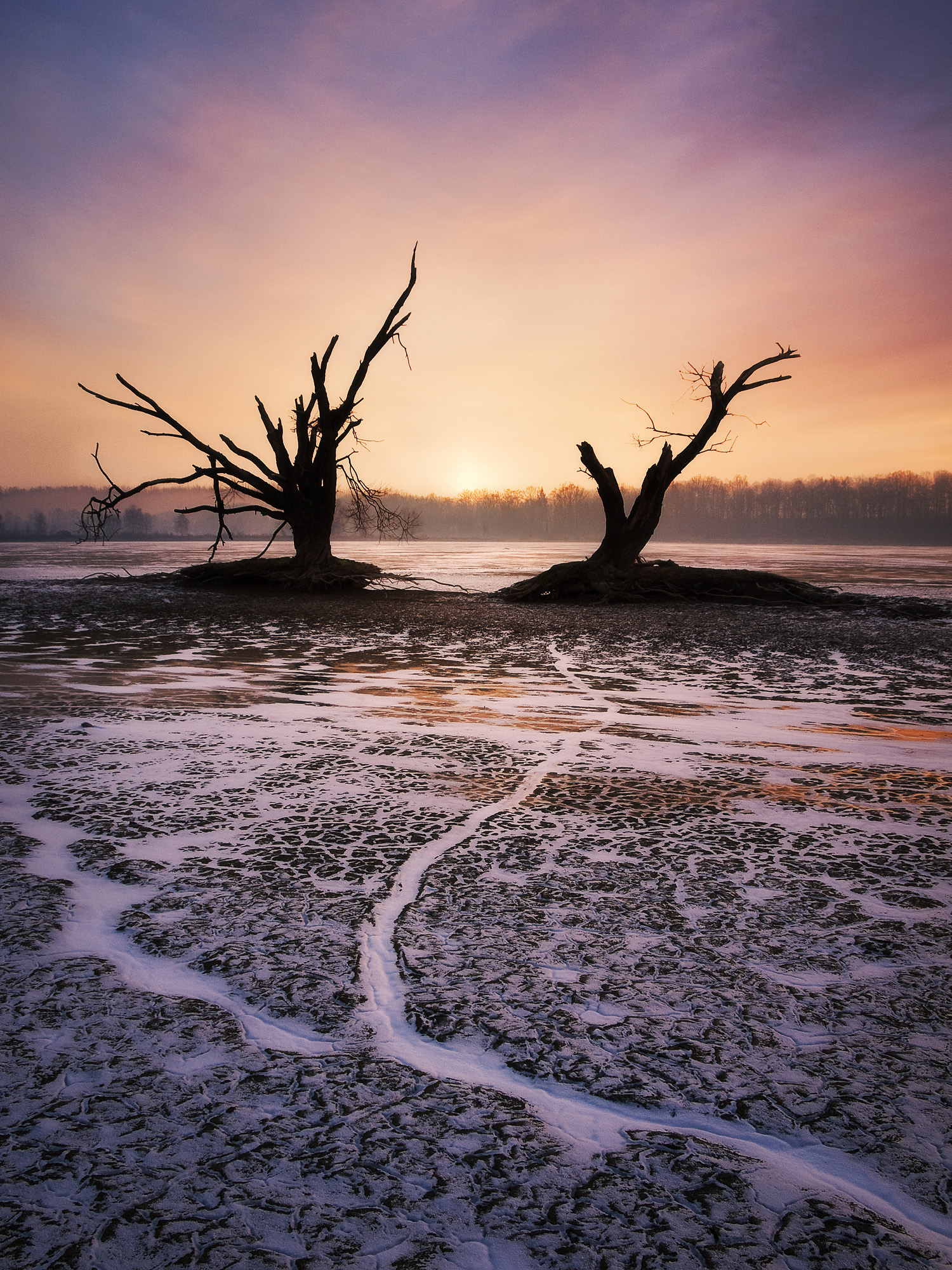
Torsos of dead trees in the centre of Kotvice pond in Odra Basin protected area. Just take a while and think about the amount of time these two has spent together, about the relationship, life and death.
FROST ON THE TREES

Unique form of frost on trees in Beskydy Mountains. Probably my best image. I took it by accident and luck and didn´t think it was anything special. But its publication on the internet triggered the wave of interest in my work which I am very grateful for.
How easy – or difficult – do you find it to fit your photography around work and other commitments? When you travel for work, are you able to devote any time to either photography or researching new places?
I find it very difficult but should be that way. I am in my 20s, and I study and work hard. It is the beautiful idea of going freelance, but it is a path I don ´t want to take, maybe in ten years but not now. I expect to slow down my photography in next three years because I want to finalise my studies. But I will definitely continue to shoot every single minute of my leisure time. I plan to keep travelling to Slovakia´s amazing national parks and Poland´s Bieszczady National Park. Those are places very little photographed and with many sights to explore. And when the time comes I would love to explore the mountain ranges of Pakistan, Tibet and Nepal.
How do you like to approach your image making? Do you pre-plan and go out with something in mind, or do you prefer to let your photography flow from your explorations on foot?
I used to pre-plan a lot. I used to go out, find a new place or subject, create an idea of image and kept returning to that place until I took that photo. Now, I try to do the opposite. I try to set my mind on the fact, that nature creates the image and I just take it. It helps me to be more open-minded in my approach and happier with the results.
Every time I find myself in the wonder of natural beauty; I see something I could had never pre-planned. This is not such easy approach as one might have thought, however. It teaches me to be humble and non-egoistic. I remember I was upset every time a cloud came and blocked the light and destroyed my plans of taking that desired photo. Now I see it as an opportunity to shoot thousands of subjects nature may create for me at that moment. So yes, I try to let my photography flow from my presence on a location.
How important do you find it to be in the right frame of mind? Have you found ways to work around periods when your mind is busy with other things?
I always go out and shoot during my exams and deadlines at work. That shooting may take just two hours, but it clears my mind, and I can realise what my priorities are, and I return ready to deliver. Furthermore, I learned how to meditate, and I practice Bön Buddhism. I have a luck of having amazing teachers and a small group of people who understand my photography and connection to nature, and they help me to develop that even more. I quite often meditate in nature and mountains. My teachers helped me to realise that my style of photography is a form of meditation. So if I go out to nature with many bad thoughts and feelings I clear all of that and return with open and refreshed mind.
If you had to take a break from all things photographic for a week, what would you end up doing?
It would be my ordinary week with lots of meetings with clients, Friday at school and weekend with a lot of leisure time in which I would hike into mountains or Odra Basin without a camera and just with my dog. I would also do some archery, running, swimming, reading and meditation. Those are my main hobbies besides photography.
What sorts of things do you think might challenge you in the future or do you have any photographs or styles that you want to investigate? Where do you see your photography going in terms of subject and style?
Very difficult question, I think and ask myself about it very often. First, I want my photography to be more truthful and less photoshopped. I don´t photoshop my photos too much, and I had to show my RAWs for publication in NatGeo for example, so I think I don´t manipulate my pictures too much. But I feel digital photography and my photography needs to go back a little bit as regards connection to subject and (for us landscape photographers) to nature. Next, I would love to bring public attention to nature and issues we are facing nowadays in the Czech Republic. Especially wood mining and forestry are not OK, in my opinion. And the biggest challenge I see is my idea of connecting photography and education. Generally, photography is one of the most popular hobbies worldwide.
Everyone has a camera in a phone. On the other hand, commercial usage of photos is declining together with decreasing sales of paper magazines. Many profitable webpages use our images with proper copyright statement but without any payment for an author. Furthermore, photos have to compete with video. Sooner or later, we all will have to re-think photography and its purpose. And I see its value and future purpose in connection with education, personal development, prevention of bullying, therapies, etc. I am talking probably about next 20 or 30 years but I think and hope those are new challenges for photography and for me and I want to be part of it and inspire others.
Which photographer(s) – amateur or professional - would you like to see featured in a future issue?
I am not sure who has already been featured, but I would name Floris van Breugel, Kah Kit Yoong and Zsolt Andras Szabo. Zsolt Andras Szabo is probably the least known from the rest but I think he puts a lot of effort into his photography and he shoots in his home country Romania in very remote mountains, and he refuses to travel to thousand times photographed spots and I think he deserves credit for that.
Could you give us the background on the 'frost' photo and how it picked up interest and what happened next?
That photo came up out of pure luck and coincidence. My aunt celebrated her birthday in a hut in Beskydy Mountains. I didn´t plan to take my camera but my dad told me to check the weather and webcams, and I saw the potential of frost there. After arriving at the hut, I took my gear and went to the forest. I spent about 3 hours of hiking steep mountain terrain, half of that time off of any path. And I found a place with that frost and took that photo. The only thing I did and am proud of is the composition of that image. I love composing in a field, especially all those complex and difficult places like forests or details and I decided for quite unconventional composition which works well. That´s the only thing I can take credit for. The rest was just a coincidence and luck. Furthermore, I didn´t realise I took something outstanding. Back in the hut during the celebration, everyone asked me about my shooting and I replied that I took just another average shot. I processed the image next week and published it online on Facebook and 500px. It received a lot of attention, and I found six emails from photo agencies in my box. I took the first one and agreed that the photo would be promoted by them for three months. And every blogger or website who wanted to write an article I agreed they could use the photo. I definitely didn´t expect such attention and the fact I´ve got viral image caught me unprepared. But it has brought attention to my portfolio, places I portray and country I live in and I am very glad for that and wish everyone to experience something like that.
--------------------------------------------------------------------------------------------------------------------------------------------------------------------------------------------------------------------------------------------------------------------------------------------------------------------------
Thank you very much Tim for such well asked questions. More great articles and interviews can be found on ON Landscape website.
Photography book
LANDSCAPE IN PHOTOGRAPHY
Would you like to see my photos in a book? You can order my book Landscape in Photography.
Price 35 EUR